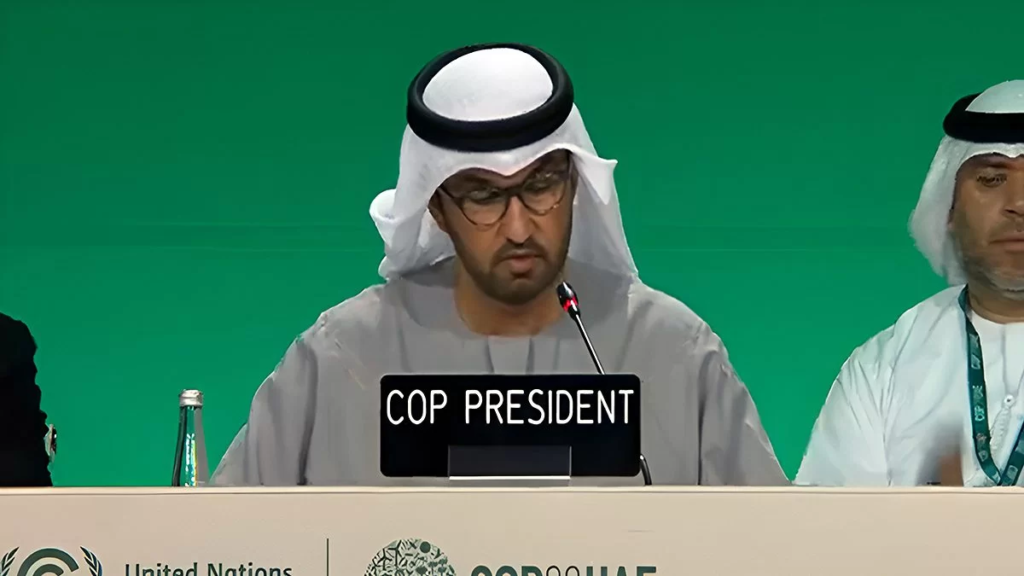In a historic moment at COP28, representatives from 197 countries and the European Union rallied behind the groundbreaking ‘UAE Consensus’ on climate change, marking an important step towards a sustainable and resilient global future.
The final text of the climate deal, approved at COP28, signifies a collective commitment to steer away from fossil fuels. This pivotal move aims to mitigate the severe impacts of climate change. It represents the first time the world has embraced a clear directive on transitioning to cleaner energy sources.
Addressing the Fossil Fuel Dilemma Head-On:

Norway’s Minister for Climate and the Environment, Espen Barth Eide, emphasized the historical significance of the agreement, stating, “It is the first time that the world unites around such a clear text on the need to transition away from fossil fuels. It has been the elephant in the room. At last, we address it head-on.”
Final Meeting Culminates Two Weeks of Intensive Negotiations:
Representatives from participating nations convened for the final meeting on Wednesday morning, marking the culmination of two weeks of rigorous negotiations.
The successful passage of the ‘UAE Consensus’ concluded the discussions, highlighting the global commitment to addressing climate challenges.
Agreements reached at UN climate summits, such as COP28, require unanimous approval. The ‘UAE Consensus is now a shared responsibility, necessitating individual countries to translate commitments into actionable national policies and investments to drive tangible change.
Shaping a Greener Tomorrow:
Adopting the UAE Consensus positions nations worldwide on a trajectory toward a greener, more sustainable future.
As countries collectively navigate the challenges of climate change, this landmark agreement sets the stage for transformative actions that prioritize environmental preservation and resilience.













